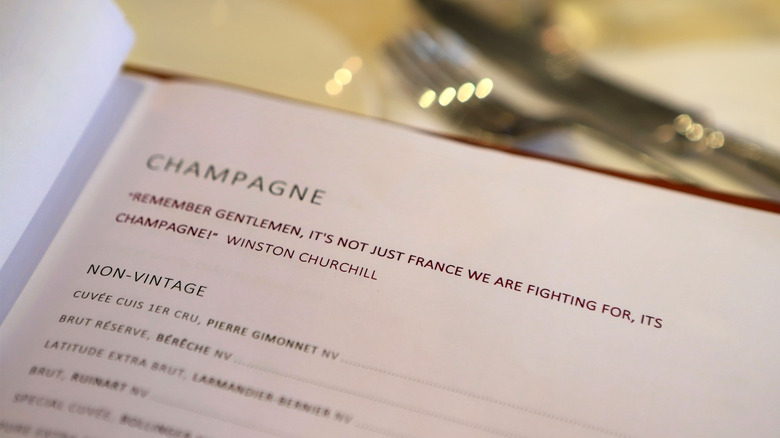Why You Shouldn't Order Some White Wines At A Steakhouse
You've probably heard the advice before. Red wine goes with "heavier" red meat-based dishes (think a porterhouse steak or a humble serving of spaghetti and meatballs), while white wine goes with lighter fare, from flavorful fish to just plain chicken. A recent Mashed article breaks down why this is and it all comes down to science.
Red wine's high tannin content works well with protein and fat, as the red wine tannin can help break down steak fat and the meat can help absorb the astringent tannin in the wine. When it all comes together in your mouth, that's when the magic happens. However, just because red wine and steak play well together, that doesn't mean that you should never order white wine while at a steakhouse. In reality, there are only certain types of white wine that you should avoid the next time you're chowing down on a succulent filet mignon.
Which white wine should you order (and avoid) at a steakhouse?
The key to enjoying a white wine alongside your steak is choosing one that closely resembles a red wine, as well as picking a white wine that will appropriately complement the type of steak you're eating (and its accompaniments). Light vino goes well with dry-aged steak, as well as any high-quality beef, per Forbes. It's also preferable with rare or medium-rare grilled steak and steak served without heavy sauces, as well as lean cuts or those beef dishes served raw, such as steak tartare or carpaccio (via Food & Wine). However, make sure to avoid white wine that's too light or that's lacking in flavor.
So, if you have a heavy, fatty cut of steak, stick with your red, but if you have a lean, high-quality piece of beef served simply, try out a white. Recommended white wines for steak dinners include Chardonnay, White Burgundy, Riesling, Chenin Blanc, Viognier, White Rioja, Marsanne, and Champagne. According to one sommelier, any wine with "bright, fresh acidity ... generous minerality and [that's] rich and layered" should do the trick.

